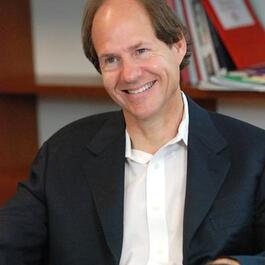
New Books in Politics and Polemics
This podcast is a channel on the New Books Network. The New Books Network is an academic audio library dedicated to public education. In each episode you will hear scholars discuss their recently published research with another expert in their field. Discover our 150+ channels and browse our 28,000+ episodes on our website: newbooksnetwork.com Subscribe to our free weekly Substack newsletter to get informative, engaging content straight to your inbox: https://newbooksnetwork.substack.com/ Follow us on Instagram and Bluesky to learn about more our latest interviews: @newbooksnetwork Support our show by becoming a premium member! https://newbooksnetwork.supportingcast.fm/politics-and-polemics
Show episodes

What happens when liberalism stops feeling like a victory and starts feeling like an exhaustion?
In this episode of International Horizons, RBI Director (acting) Eli Karetny speaks with philosopher Alexandre Lefebvre about liberalism not merely as a political doctrine, but as a lived way of life. Against the backdrop of rising populism, nationalism, and post-liberal regimes, Lefebvre revisits the liberal tradition

Hans Kundnani, "Eurowhiteness: Culture, Empire and Race in the European Project" (Oxford UP, 2023)
"Today’s 'pro-Europeans' would be horrified at the suggestion that their idea of Europe had anything to do with whiteness. In fact, many would find the attempt to link the two baffling and outrageous," writes Hans Kundnani in Eurowhiteness: Culture, Empire and Race in the European Project (Oxford UP, 2023). Yet, he doe
What is political independence? As a political act, what was it sanctioned to accomplish? Is formal colonialism over, or a condition in the present, albeit mutated and evolved? In Critique of Political Decolonization (Oxford UP, 2023), Bernard Forjwuor challenges what, in normative scholarship, has become a persistent

Russell T. McCutcheon, "Critics Not Caretakers: Redescribing the Public Study of Religion" (Routledge, 2023)
Russell T. McCutcheon's essay collection Critics Not Caretakers: Redescribing the Public Study of Religion (Routledge, 2023) argues that the study of religion must be rethought as an ordinary aspect of social, historical existence, a stance that makes the scholar of religion a critic of cultural and historical practice

Jonathan Sumption, "The Challenges of Democracy: And the Rule of Law" (Profile Books, 2026)
Across the globe, democracy is in crisis - in the UK alone, it has been rocked by Brexit, the pandemic and successive attempts by governments to bypass legal norms. But how did this happen, and where might we go from here? Jonathan Sumption cuts through the political noise with acute analysis of the state of democracy

Trymaine Lee, "A Thousand Ways to Die: The True Cost of Violence on Black Life in America" (St. Martins, 2025)
A few years ago, Trymaine Lee, though fit and only 38, nearly died of a heart attack. When his then five-year-old daughter, Nola, asked her daddy why, he realized that to answer her honestly, he had to confront what almost killed him—the weight of being a Black man in America; of bearing witness, as a journalist, to re





